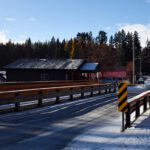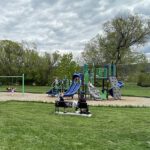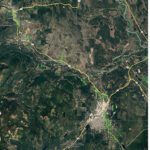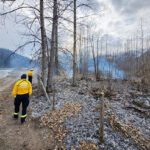Home »

Winter walking safety
Winter weather can make for wary walking conditions and unexpected falls, but with some prevention and planning, injuries can be avoided.
Falls outdoors are a particular health concern for older adults at this time of year, when winter weather and less daylight can have an impact on mobility, reports the B.C. Ministry of Health.
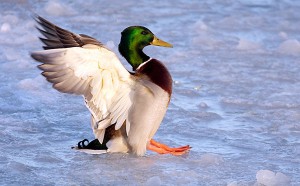 “Falling can result in bruises, sprains, and more serious injuries like broken bones or concussions, all of which can significantly impact long term health – particularly for seniors,” said Health Minister Terry Lake. “Taking steps to avoid an unexpected slip or trip may take a few extra minutes, but will have a strong influence on our health down the road.”
“Falling can result in bruises, sprains, and more serious injuries like broken bones or concussions, all of which can significantly impact long term health – particularly for seniors,” said Health Minister Terry Lake. “Taking steps to avoid an unexpected slip or trip may take a few extra minutes, but will have a strong influence on our health down the road.”
Each year, one in three B.C. seniors experience at least one fall. Data from last winter indicates that over 260,000 British Columbians over the age of 65 will experience at least one fall this winter.
“Falls are a common cause of injury for older adults and the main reason seniors lose their independence,” said Michelle Stilwell, Parliamentary Secretary to the Minister of Health for Healthy Living and Parliamentary Secretary to the Minister of Health for Seniors. “Being proactive with health and safety is an invaluable investment in ourselves.”
“Falls are no accident and most are preventable. It is imperative we take action to identify older adults at greatest risk for falls and intervene with known effective programs,” said Heather McKay, director of the Centre for Hip Health and Mobility. “Consulting with your primary care physician or nurse practitioner about falls prevention programs in your community, has been shown to reduce falls by as much as 50%.”
People of all ages can experience falls; these tips can help everyone to stay fall-free this winter:
* Eat foods high in Vitamin D and calcium and/or take supplements to get the recommended daily intake, both play an important role for muscular strength and bone health.
* Wear footwear with non-slip tread and add ice-grippers over your footwear when the temperature is below freezing.
* Take a cell phone with you – it is a good way to let people know your plans and call for assistance if needed.
* Choose cleared sidewalks and well-lit routes.
* Avoid carrying objects that are too heavy or bulky and may cause you to lose your balance.
* Plan ahead to make sure you have enough time to get to your destination without rushing.
* Stay active with strengthening and balance exercises that can be done inside or out. Strong muscles and bones are important in preventing falls and getting around safely.
* Ask for assistance or tap into community resources. The Better at Home program provides support with day-to-day tasks to help increase seniors’ independence such as transportation to appointments or shoveling the walk.
* Have a plan – if you experienced a fall, what would you do? Knowing your next steps can assist in getting help as quickly as possible and may even save your life.
* Ask yourself if you are at risk – check your risk for falling with the Staying Independent fall risk assessment tool: www.seniorsbc.ca/stayingindependent
Information on falls prevention can be found at: www.SeniorsBC.ca/stayingindependent
e-KNOW




